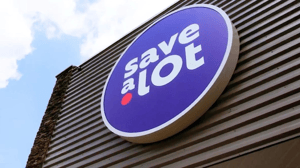NGA Foundation awarded $5M SNAP grantNGA Foundation awarded $5M SNAP grant
The grant, via the USDA, supports the group’s push towards online SNAP purchasing
January 9, 2023

The National Grocers Association Foundation has been awarded a $5 million grant by the USDA’s Food and Nutrition Service to support furthered implementation of online Supplemental Nutrition Assistance Program (SNAP) grocery purchasing.
Recipients of SNAP benefits, which are designed to supplement the food budgets of needy families, can purchase groceries at authorized food stores and retailers by using an electronic benefits transfer (EBT) card that functions as a debit card. Benefits are automatically loaded into users’ accounts each month.
The grant, funded by the American Rescue Plan Act, will facilitate creation of the SNAP EBT Modernization Technical Assistance Center, which will guide grocers through the process of establishing an online purchasing program and provide support for a mobile payments pilot.
The center also will teach retailers the federal requirements for SNAP EBT modernization.
“Independent community grocers have been actively pursuing expansion of their online purchasing platforms, including online SNAP and mobile payment capabilities, to meet the ever-growing consumer demand for online shopping,” Chelsea Matzen, NGAF director, said in a statement. “But obstacles and a lack of resources have hindered the ability of many smaller retailers to pursue innovative solutions, resulting in reduced access for customers to needed essential food products and services.”
This grant will pave the way for more smaller grocery operators to offer SNAP online purchasing, she said, which will make them more competitive in their respective market areas and better able to provide service to food-insecure Americans.
Increasing access to online grocery purchasing is particularly important to rural communities and areas served by stores with limited selections of healthy foods, the NGAF said. “Small stores are the heartbeat of towns across America,” Stacy Dean, deputy undersecretary for the USDA’s Food, Nutrition and Consumer Services, added in a statement.
“They’re often individually owned and operated, create local employment opportunities, and provide essential resources for their community, but they also may not have the same resources that bigger stores have at their fingertips,” she said.
Through the Technical Assistance Center, NGAF will leverage and build upon its previous experience of offering technical assistance with SNAP, NGAF said. Earlier initiatives include a SNAP Resource Guide for brick-and-mortar retailers, which the NGAF said will be built upon and reworked to create an expanded resource for all retailers interested in participating in SNAP online.
The SNAP online program is steadily expanding with 178 retailers, representing thousands of stores across the country, joining since March 2020. Five retailers with 78 store locations were added to the program since November 2022, and 49 states and the District of Columbia are set up to provide 99% of all SNAP participants with access to online purchasing, the FNS said. It added that Alaska, the remaining state, will soon implement online purchasing.
Nearly 4 million SNP households shopped online in November 2022, up from about 35,000 households in March 2022. “The USDA is dedicated to expanding the number and diversity of retailers offering SNAP online shopping to connect more participants with its benefits, such as protecting people who are immunocompromised, elderly, and/or disabled from unnecessary exposure to COVID-19 and other communicable diseases,” the FNS said in a statement. “It can also be a valuable tool for reducing the stigma and discrimination that marginalized communities may, unfortunately, be more likely to face when shopping in person.”
About the Author
You May Also Like






